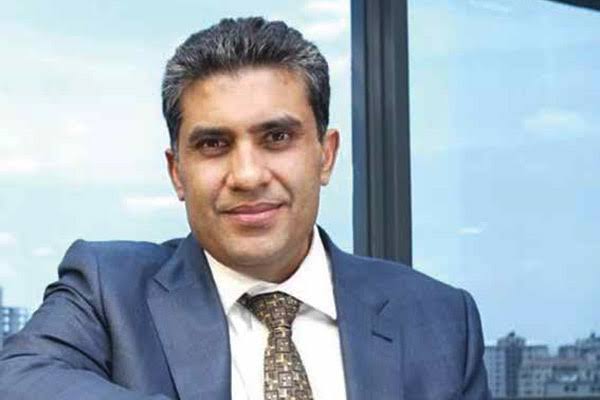A controversial digital communications project within President William Ruto’s administration has thrust prominent businessman Jayesh Saini into the spotlight, raising serious questions about foreign involvement in Kenya’s state messaging apparatus and the allocation of sensitive government contracts to non-Kenyan nationals.
The scandal emerged through court documents filed by Canadian-Kenyan tech entrepreneur Wachuka, who alleges she was contracted to develop a sophisticated digital communications system designed to enhance President Ruto’s online image and counter opposition criticism. Her legal complaint, demanding Ksh289 million in damages, has exposed what appears to be a clandestine propaganda operation with significant foreign participation.
Foreign Nationals in State Communications
At the heart of the controversy lies the involvement of foreign nationals in Kenya’s most sensitive communication strategies. Wachuka’s allegations suggest that the project, which had presidential approval and was to be funded through confidential Treasury budget lines, represented an unprecedented outsourcing of state messaging to individuals with divided loyalties.
The arrangement becomes more troubling when considering that such digital systems would have access to government intelligence, opposition research, and state communication strategies. The decision to entrust foreign nationals with these responsibilities raises fundamental questions about national security protocols and the vetting processes for sensitive government contracts.
Saini’s Power Play
According to court filings, Jayesh Saini’s attempt to wrest control of the project from Wachuka ultimately led to her withdrawal from the arrangement. This power struggle illuminates Saini’s expanding influence within Ruto’s inner circle, extending his reach from the health sector into the politically sensitive realm of state communications.
Saini’s involvement is particularly concerning given his business interests and potential conflicts of interest. His attempt to control a state-funded digital messaging operation suggests an inappropriate blending of private business influence with government communication strategy, potentially compromising the independence and integrity of official messaging.
High-Level Government Complicity
The legal documents implicate several high-ranking officials in the scheme, including Treasury Principal Secretary Chris Kiptoo, Head of Public Service Felix Koskei, and President Ruto’s speechwriter Eric Ng’eno. Their alleged involvement suggests the project had approval at the highest levels of government, making the foreign national component even more troubling.
Eric Ng’eno’s reported admission that the president was dissatisfied with online criticism and sought a “custom-built digital system to control the narrative” indicates a deliberate effort to manipulate public opinion using state resources and foreign expertise.
Ethical and Constitutional Concerns
The allegations raise several critical issues about governance and accountability. The use of confidential Treasury funds for what appears to be political rather than governmental purposes violates principles of transparent public spending. More seriously, the involvement of foreign nationals in state communication strategies poses potential national security risks.
The reported plan to use the system for “online attacks against opposition leaders” suggests a misuse of state resources for partisan political purposes, undermining democratic principles and fair political competition.
Denials and Damage Control
Following media reports about internal conflicts, digital strategist Dennis Itumbi publicly denied any feud with Ng’eno, dismissing the revelations as “distractions meant for entertainment.” However, his denials do not address the core allegations about foreign involvement in state communications or the appropriateness of such arrangements.
Broader Implications
This saga reflects a troubling pattern of foreign influence in Kenya’s governance structures. The willingness to entrust sensitive government communications to foreign nationals, combined with the secretive nature of the funding arrangements, suggests a casual attitude toward national sovereignty and security protocols.
The controversy also highlights the growing influence of individuals like Saini, whose business interests intersect with government operations in ways that may compromise public interest. His attempted takeover of the digital project demonstrates how private individuals can gain inappropriate influence over state functions.
Questions Demanding Answers
Several critical questions emerge from these revelations: Why were foreign nationals considered for such sensitive government work? What vetting processes, if any, were followed? How many other government communications functions have been outsourced to foreign entities? And what safeguards exist to prevent similar arrangements in the future?
The court case has already exposed significant divisions within President Ruto’s team and raised serious questions about decision-making processes at the highest levels of government. As more details emerge, the public deserves full transparency about the extent of foreign involvement in Kenya’s governance structures and the measures being taken to protect national interests.
The Saini affair serves as a stark reminder that the outsourcing of sensitive government functions, particularly to foreign nationals with potential conflicts of interest, poses risks that extend far beyond individual contracts to the very foundation of national sovereignty and democratic governance.
There's no story that cannot be told. We cover the stories that others don't want to be told, we bring you all the news you need. If you have tips, exposes or any story you need to be told bluntly and all queries write to us [email protected] also find us on Telegram

